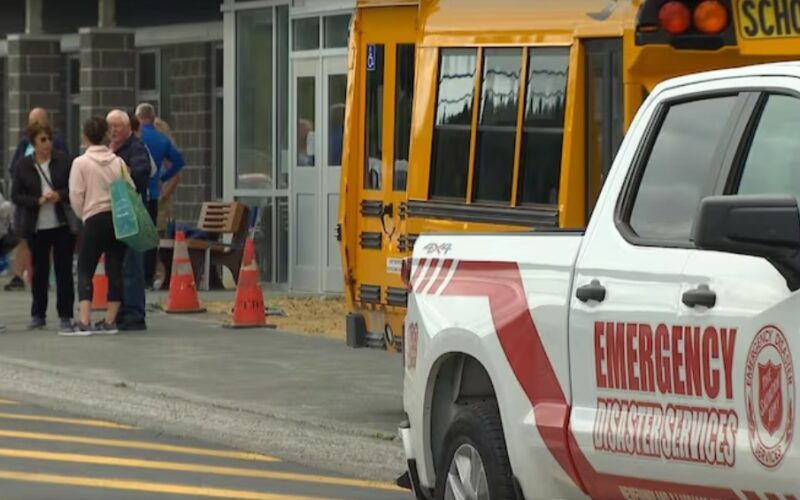St. John’s, Newfoundland (Richa Walia)– For Scott Chandler of Conception Bay North, September usually means a hectic but welcome routine of school and extracurriculars for his son Rhys. This year, however, the family is still reeling from the loss of their home and Rhys’s school, Cabot Academy, in the devastating wildfires that swept through the region in early August.
Forced to evacuate multiple times in just weeks from Victoria to Carbonear and then Harbour Grace Chandler says the emotional toll on his third-grader has been immense. “All your clothes, your games, your video games are gone,” he recalls telling his son. “He’s processing it like an eight-year-old does.”
Despite the heartbreak, Rhys has found comfort in reconnecting with friends and hockey teammates after being reassigned to Carbonear Academy. For Chandler, the priority is restoring normalcy. “They need that routine. They need to be together,” he stressed.
Schools Face New Climate Pressures
Education leaders warn that wildfires, poor air quality, and extreme heat are increasingly disrupting school operations across Canada. Alan Campbell, president of the Canadian School Boards Association, emphasized that schools must be equipped with updated emergency plans to keep students connected to learning, even in displacement.
“We’re used to preparing for blizzards. Now we must track wildfire smoke and extreme weather just as closely,” Campbell said. He cited Manitoba’s approach, where displaced families are being contacted and linked to nearby schools before the new term, as an example of best practice.
Ali Asgary, professor of disaster and emergency management at York University, warned that while emergency plans often exist on paper, they need regular drills and updates to be effective. “Even one week of lost schooling is a huge gap. We want to minimize that,” he said.
Call for Multi-Level Support
Both experts stressed that provinces and local school boards cannot manage disaster preparedness alone. “There has to be support up to the federal level,” Asgary argued, while Campbell called for stronger collaboration across government levels without undermining local decision-making.
In Newfoundland, Chandler is grateful that Cabot Academy’s students and staff were quickly redistributed. But he insists that ongoing support including counseling and behavioral therapy is crucial.
“They need to talk, they need to grieve together. I hope officials are considering everything to keep these students and staff united,” he said.
Wildfires Disrupt Back-to-School Season as Canadian Families and Schools Struggle to Restore Normalcy

